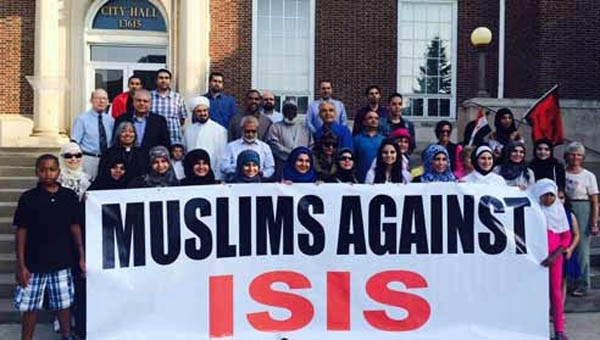“Can you measure a person’s hate for you? No, because a dirty look is just that.”
These words were spoken by Aaliyah Furqan, a Muslim sophomore majoring in international relations at The University of Alabama. Since the terrorist organization Islamic State, a group formerly known as ISIS that was responsible for the beheadings of two American journalists, has been a topic in the media, Furqan has noticed unfair judgement being placed on her because of her religion.
“As an African-American Muslim, I get treated differently sometimes for being black and other times for being Muslim,” said Furqan. “Fully grown and capable adults snatch things from me when I’m just a cashier at work. People say they wouldn’t like to room with me without knowing me, even though I’m just another student looking for housing.”
Furqan said she did not want to be pitied for this treatment.
“I’m used to it,” she said. “People have always treated me based on what the news says. But I’m American, and I wouldn’t survive one day under ISIS. Most hate problems in America are due to ignorance, and race, religion and ethnicity are put in the same box that is labeled terrorist.”
Several professors offered theories on the mistreatment of certain ethnic and religious groups. Derrick Frazier, an associate professor who specializes in international relations, said historical factors were to blame.
“There is a long-term process of what some social scientists call ‘othering’ that has basically led us to view people from the Middle East as significantly different from our own,” Frazier said. “It often facilitates negative imaging and stereotyping, making it easier for us to think of people, cultures and societies in the Middle East as less developed or distinctly inferior to our own.”
“For more than a decade, the U.S. has been fighting and trying to help bring stability to the Middle East. The constant violence, the rise of non-state terrorist groups and the presence of anti-Americanism in the region creates for Americans a sense of insecurity regarding people from the region,” he said . “Many Americans believe that the driving force in all of this is Islam and as a result, Islam is viewed as a violent religion capable of leading any believer toward the use of violence against others to spread their beliefs.”
Frazier said he recognizes the importance of eliminating these negative feelings toward a religion that has been misunderstood for years.
“Perhaps the most direct way to facilitate better relations is to increase interactions between Muslim and non-Muslim groups, such as with community outreach,” he said. “Instead of making assumptions about others based on stereotypes and misperceptions generated by the media or more permanent historic factors, interactions with local Muslim groups can give non Muslim Americans a better sense of Muslim identity in the community. The likely discovery will be that local Muslim groups and the individuals that comprise them are much more similar than different from their neighbors.”
Eleanor Finnegan, a professor in the department of religious studies and scholar of Islam, said she had similar thoughts on how to prevent mistreatment of Muslims.
“Education certainly could help,” Finnegan said. “It would help if people learned about all of the various, non-violent ways that Muslims interpret the Islamic tradition.” ISIS has worked hard to position itself, through its name and use of terms like ‘Caliph,’ as an authority among Muslims, when most Muslims would say that ISIS is misrepresenting Islam or even going against Muslim teachings.”
American students at the University of Alabama are also speaking out against the prejudice towards Muslims. Emily Jones, a freshman majoring in choral music education, shared her thoughts on Islamic State and Muslim mistreatment.
“ISIS is a problem that needs to be taken care of, but people don’t need to mistreat Muslims because not every one of them is ISIS,” she said. “So I think people need to be mindful of other people, but ISIS is a problem that the government needs to take care of.”









